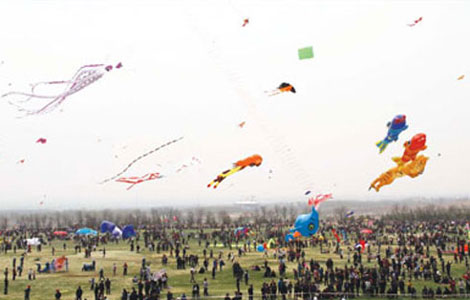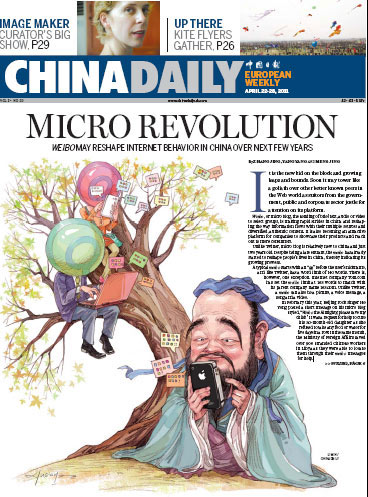Society
Team of experts set to bite back at rogue producers
Updated: 2011-04-27 08:26
By Shan Juan (China Daily)
BEIJING - China's top health authorities have ordered the establishment of a national committee of experts and called for investigation teams to be set up across the nation as the country intensifies its efforts to crack down on the production of tainted food.
The Ministry of Health (MOH) said via an online notice on late Monday that the current food-safety-testing methodology and technology should be improved urgently to better protect people from food-borne health risks.
The expert committee will support the ongoing campaign to fight such threats as the use of illegal additives in food production, the notice said.
The move follows public anxiety about the absence of effective testing methods for dozens of materials that might be illegally used during the production of food and that can cause health hazards among consumers.
Previously, the MOH issued a blacklist of 151 banned materials that pose a risk to public health and that might be added to food or fed to animals that produce food.
The banned materials include 47 substances that are unfit for human consumption but that are likely to be added illegally to food. It also includes 22 food additives that can easily be abused and 82 substances that are forbidden from being added to animal feed or water.
However, according to the ministry, 37 of the items on the list cannot be detected at the moment because of limitations in testing technology.
To address that, "a whole process of supervision coupled with on-site raids will be adopted," the notice said, adding that great efforts are also being made to improve testing methods.
Zeng Qingxiao, a food safety expert based in Guangdong, said, for harmful materials that are currently invisible to testing methods, spot checks will be a crucial tool to eliminate potential risks.
The MOH has ordered local authorities to form special teams comprising both law enforcement officials and food safety experts to investigate suspicions about food safety.
Local health authorities should also set up systems that allow the reporting of food safety incidents and that can oversee investigations, the ministry said.
The MOH also urged health authorities to improve their emergency response systems pertaining to food safety incidents.
However, Wang Ming, a division director with the Fujian Food and Drug Administration, said the onus should be on producers to guarantee the safety of their products.
"Food producers should be the first in line when it comes to accountability for the safety and quality of their products because the usually poorly staffed food safety supervision departments, particularly at the local level, can hardly be expected to detect in time all potential risks," he said.
In recent years, food safety scandals have abounded on the mainland.
"Many of them are man-made disasters," said Zhang Yong, director of the executive office of the State Council Food Safety Commission.
A Beijing shopper named Xu Xiaolei told China Daily that, with so many food safety risks, "I don't know what's safe to eat".
Also on Tuesday, the General Administration of Quality Supervision, Inspection and Quarantine ordered strengthened supervision over food additive manufacturers across the country.
It is strictly forbidden to produce and sell non-edible materials that are likely to be used in food production without official certificates, and authorized producers of the materials must adopt a real-name selling system.
E-paper

Blowing in the wind
High-Flyers from around the world recently traveled to home of the kite for a very special event.
Image maker
Changing fortunes
Two motherlands
Specials

Costly dream
Uninhabited havens up for lease but potential customers face wave of challenges in developing them.

Models gear up car sales
Beauty helps steer buyers as market accelerates.

Urban breathing space
City park at heart of Changchun positions itself as top tourism attraction




